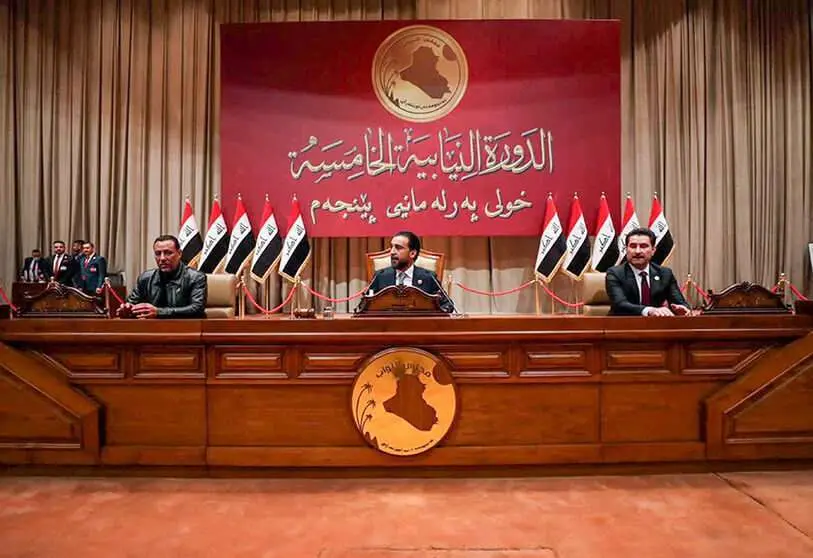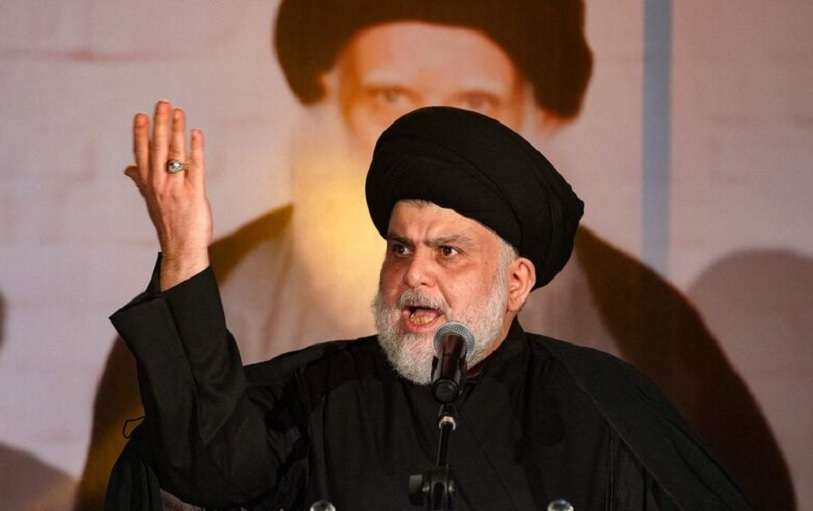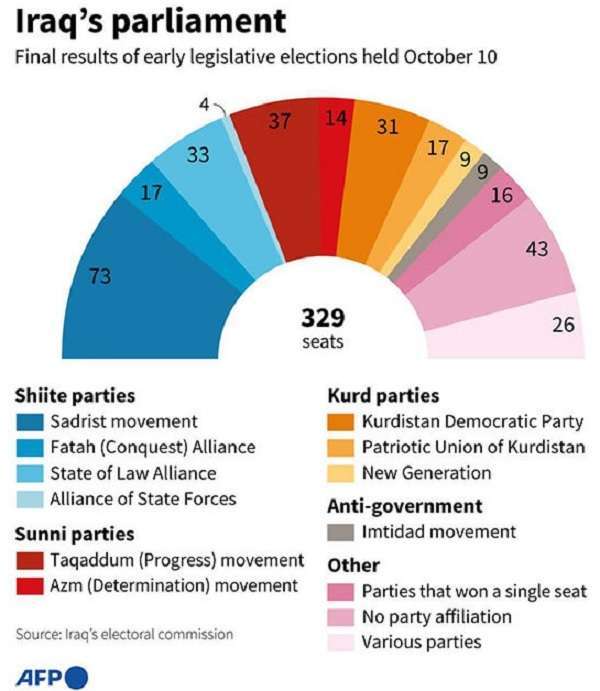New setback for Iraqi politics: all 73 MPs of the most voted force in parliament resign

The Iraqi political landscape, marked by a stalemate of more than eight months since the early legislative elections in October 2021, has been shaken by a new earthquake. The 73 deputies of the Shiite Sadrist Bloc, the majority force in the legislature, announced on Sunday that they were resigning en bloc from parliament, encouraged by a letter from their own leader, the cleric Muqtada al-Sadr, a staunch opponent of US and Iranian interference in the country, who had already warned of this decision days before.
"This is my sacrifice for the homeland and for the people, to free them from an unknown destiny, just as we have made sacrifices on other occasions for the freedom, sovereignty, security, unity and stability of Iraq", the letter sent by al-Sadr to the deputies was published by the Kurdish-Iraqi channel Rudaw. And so, thanking the "nationalism and firmness" of the Kurdistan Democratic Party (KDP) and the Progress Party -Sunni-, parliamentary allies of the Sadrist Bloc (Sayirun), Al Sadr also took the opportunity to announce the severance of their relations.

In addition, the movement announced the closure of all Al Sadr-affiliated institutions and headquarters throughout the country, with the exception of six centres: the shrine and office of Mohamed Sadiq al Sadr, the headquarters of Muqtada al Sadr, the heritage office, the museum and the al-Bunyan al Marsous project.
For his part, the president of the legislature and leader of the Progress Party, Mohamed al-Halbusi, said he had made a "sincere and honest effort" to prevent the resignation, but al-Sadr, he said, "preferred to sacrifice himself rather than be the cause of the paralysis of the process". In recent months, the Sadrist leader has had to face implacable opposition from the other alliance of Shiite parties - the Pro-Iranians - grouped in the Framework for Coordination, who have prevented the election of a new national president on three consecutive occasions due to a lack of a quorum. This appointment precedes the election of a prime minister and the subsequent creation of a government team.
"In accordance with the requests of His Eminence Muqtada al Sadr, we reluctantly accept the resignation requests of our brothers and sisters, the deputies of the Sadrist Bloc," Al Halbusi posted on his Twitter account.

However, according to Iranian analysts and political scientists, parliamentarians need to approve, by an absolute majority, the departure of the 73 MPs, even if the speaker of the House has accepted the resignations. "The parliament still needs to ratify this in a public session with the necessary quorum," said Iraqi political scientist Hamzeh Haddad, explaining that the move could be "just another theatre of politics". Moreover, the vote may become an added problem due to the parliamentary holidays until August.
The main purpose of the resignation of the parliamentary group that won last October's general legislative elections was to revive negotiations that would truly put an end to the country's political paralysis. However, the alternatives that have resulted from this movement do not seem to give any guarantees that this will happen in the short term.
One of the possible scenarios now is the distribution of the seats that have so far belonged to the Sadrist MPs. These would go to the second most voted party in each of the electoral districts, changing the political balance and benefiting, among others, the Marco de Coordinación alliance, although the absolute majority of any political force would still not be guaranteed.

The second alternative would be to dissolve parliament and hold new early elections. This would mean that Al Sadr's decision would have done nothing to break the parliamentary deadlock.
Faced with this dilemma, the Iraqi president, as well as the country's interim prime minister, Mustafa al-Kadhemi, and the leader of the legislature, have called in a joint communiqué for all political forces to "unite their ranks" with the aim of "reaching a real and realistic solution by guaranteeing unity and reconciliation between all parts of the country".

Until now, the Sadrist Bloc's goal had been to create a parliamentary majority government, for which it had the support of the Kurdistan Democratic Party and the Progress Party. But the 155-seat alliance fell short of the absolute majority needed to lead the 329-seat parliament.
"Sadr came to the point of accepting the bitter reality that it is almost impossible to form a government away from the Iranian-backed groups," Ali Moussawi, a former Shia parliamentarian and researcher at Baghdad University, told the News of the World. The Sadrist victory initially raised hopes among many sectors of the population that Iraq could move away from Iranian interference in the country.
Whatever the case, any Iraqi government that comes to power will face a myriad of challenges, ranging from poverty that affects more than 41 million people, to corruption and oil dependence on Tehran, to weak institutions and the consequences of the war. Meanwhile, the formation of this government will continue to be a challenge in itself, as the starting point is an agreement between the amalgam of forces that make up the legislature to ensure that the prime minister will be a Shia Muslim, the speaker of parliament a Sunni, and the president of the government a Kurd.









